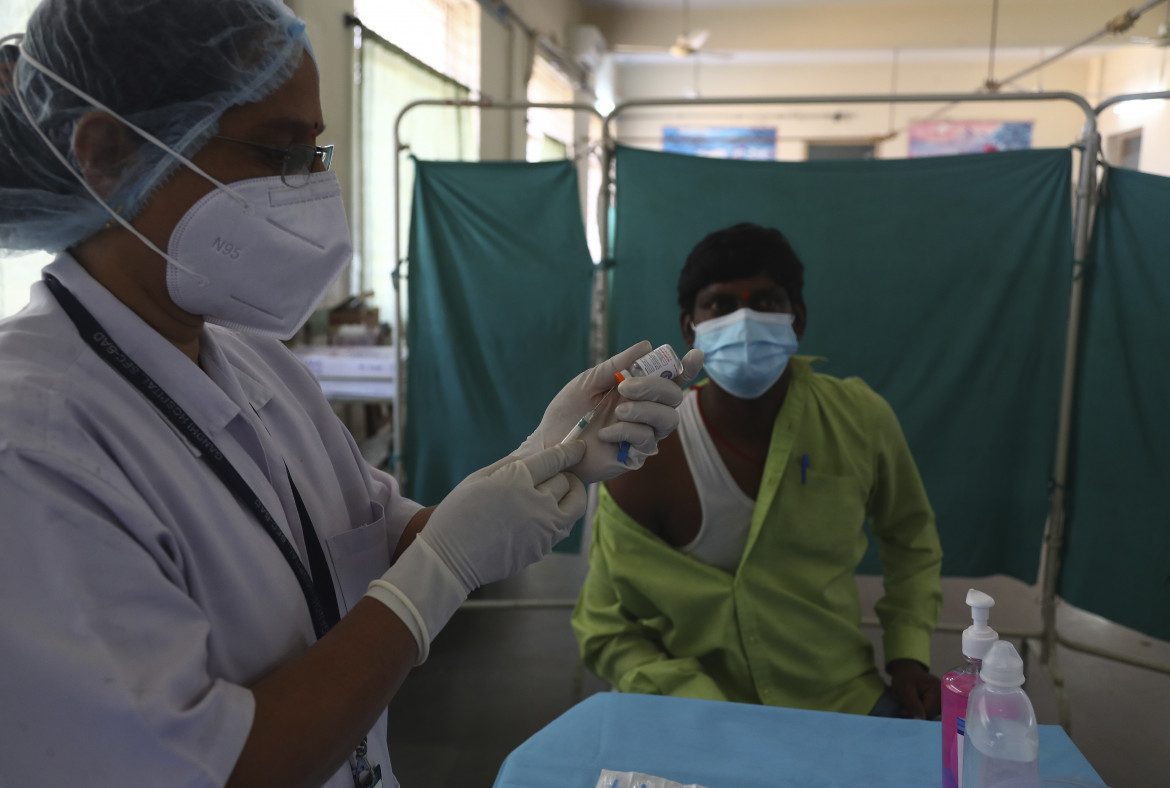Reportage
Vaccines are in short supply, but rich countries are first in line
In two-thirds of the world, there is no talk of vaccines at all. But paradoxically, 60% of the world’s vaccine production comes from India, and 75% of the WHO’s supply comes from developing countries.

In the UK, health providers will be allowed to administer doses from different vaccines to the same person in order to make up for their scarcity. This decision, criticized by doctors and scientists, shows that access to vaccinations is not a given even in Europe. However, for about two-thirds of the inhabitants of the Earth, there is no talk of vaccines at all, because the production for 2021 has all been hoarded by the rich countries.
Paradoxically, the areas of the world where vaccines are scarce are those that have the greatest capacity to produce them. In fact, 60% of the world’s vaccine production comes from India, and the Developing Countries Vaccine Manufacturers Network, which brings together manufacturers from Asia, Latin America and Africa, supplies 75% of the vaccines distributed by the WHO.
An expansion of vaccine production thanks to this emerging industry is possible, and in part it is already taking place. The company AstraZeneca has entered into an agreement with the Serum Institute of India for one billion doses, as has Novavax, which, however, is still in the trial phase. Other companies, such as Pfizer/BioNTech and Moderna, do not plan to partner with other companies to expand production for now.
Moderna has committed to not apply the patent for its vaccine during the pandemic, giving up its monopoly and allowing other companies to produce it. However, according to the Doctors Without Borders NGO, this commitment “isn’t enough,” because “know-how, technology, and other components of vaccine development and manufacturing can still be protected under IP rules,” as stated by the senior vaccines policy advisor of the NGO, Kate Elder.
To address the shortage, the WHO has launched the Covax program to collect international donations, purchase two billion doses from pharmaceutical companies and turn them over to developing countries. Despite support from the Gates Foundation and the Global Alliance for Vaccine and Immunization (GAVI), this program is in danger of failing.
This was revealed by a Reuters investigation which had access to GAVI’s internal documents, in which the risk of being unable to create the structure for Covax is described as “very high.” The danger stems from the lack of funds and the difficulties by suppliers of vaccines that are considered cheaper (AstraZeneca, Sanofi, Novavax) to ensure supplies. The poorest countries risk being “without any access to vaccines until 2024,” says another of the GAVI documents viewed by the reporters.
Since neither the market nor charity appear to be able to guarantee enough vaccines, the last available strategy is to circumvent patents. The WHO has tried to do this the elegant way by creating the “Covid-19 Technology Access Pool,” a voluntary technology and knowledge sharing program for companies and governments to freely access to produce anti-COVID vaccines and therapies. But more than six months after its launch, the program is desultorily without participants.
Given the failure of voluntary initiatives, the governments of South Africa and India approached the World Trade Organization (WTO) in late October with a proposal to suspend patents, trade secrets and copyrights on COVID-19 drugs and vaccines. The proposal has gained support from more than half of the member states. But that’s not enough: at the WTO, such decisions are taken with a three-quarters majority, or, more often, with the consensus of the entire membership.
The proponents have until the end of January to find a common agreement, but it seems impossible to make a dent in the opposition by the US and EU: the superpowers believe that the rules of international trade are already flexible enough. It is true that the WTO gives states the possibility to grant “compulsory licenses,” i.e. not to apply patents unilaterally to address particular health crises.
However, according to the proponents of the suspension, the procedure for applying compulsory licenses is too long and complex, and essentially unenforceable. The negotiations are reminiscent of those which, at the end of the 1990s, saw pharmaceutical companies and the governments of (once again) South Africa and India in conflict over patents that hindered access to anti-AIDS drugs in poor countries. Thanks to the global mobilization of “the people of Seattle,” the pharmaceutical companies ended up losing that battle.
However, even in the absence of a movement of that magnitude, a hundred movements and associations would like to at least change the position of the EU, and have launched a European Citizens’ Initiative entitled “No profit on pandemic,” aimed at the European Commission, which calls for ensuring that “intellectual property rights, including patents, do not hamper the accessibility or availability of any future Covid-19 vaccine or treatment.” If the proposal will reach one million signatures across the EU, the Commission will have to consider it and possibly adopt it as a new law.
Originally published at https://ilmanifesto.it/vaccini-due-terzi-del-mondo-non-ne-ha-accesso-i-no-profit-si-mobilitano/ on 2021-01-03
